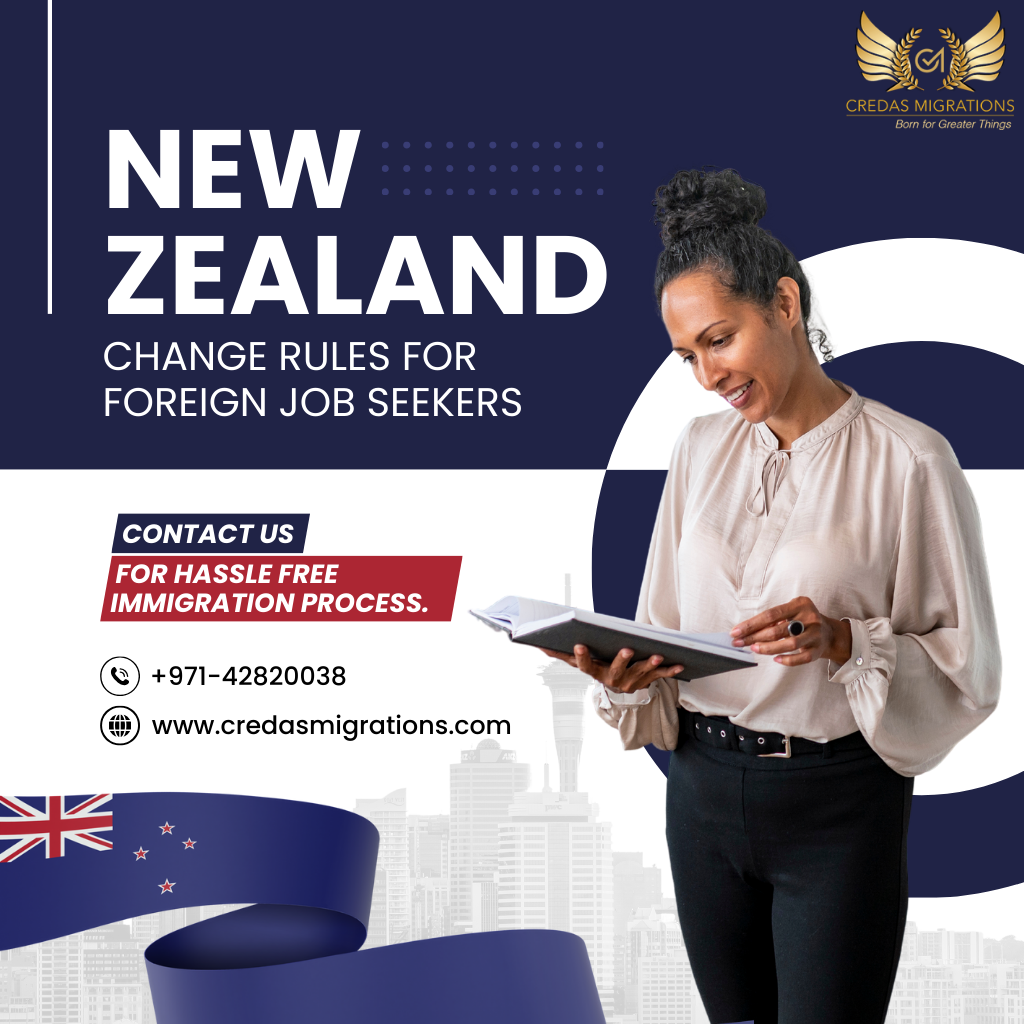In recent times, aspiring job seekers eyeing opportunities in New Zealand have been met with a shift in the visa requirements landscape. New Zealand has tightened its work visa regulations, sparking curiosity and concern among foreign job seekers. This shift necessitates a closer look at the new rules for work visas and understanding the updated New Zealand work visa requirements.
What Are the Recent Changes in New Zealand's Work Visa Requirements?
New Zealand's recent changes in work visa requirements aim to prioritize local workforce participation and streamline the immigration process. The key alterations include heightened scrutiny on visa applications, stricter eligibility criteria, and a focus on filling skill gaps that cannot be met domestically.
What Led to the Tightening of Work Visa Rules in New Zealand?
The decision to tighten work visa regulations in New Zealand stems from various factors. Firstly, there's a growing emphasis on safeguarding domestic employment opportunities amidst global economic uncertainties. Secondly, there's a concerted effort to address concerns regarding exploitation and abuse within the temporary foreign worker system. Lastly, the government aims to align immigration policies with evolving economic needs and workforce demands.


Understanding the New Zealand Work Visa Landscape
To navigate the updated New Zealand work visa landscape effectively, it's crucial to comprehend the revised requirements. Applicants must now demonstrate not only their skills but also their commitment to contributing positively to New Zealand's economy and society. Moreover, there's an increased emphasis on verifying the authenticity of job offers and ensuring they meet specific standards.
Key Questions Answered:
Key Questions Answered:
1. What are the Primary Changes in New Zealand's Work Visa Requirements?
The primary changes revolve around stricter eligibility criteria, increased scrutiny on job offers, and a focus on addressing genuine skill shortages. These changes aim to strike a balance between attracting foreign talent and protecting local job opportunities.
2. How do These Changes Affect Aspiring Job Seekers?
Aspiring job seekers must be prepared to meet higher standards in terms of skill, experience, and commitment to New Zealand's values and economy. Additionally, they may encounter a more rigorous application process and increased documentation requirements.
3. What Steps can Foreign Job Seekers Take to Enhance Their Chances of Securing a New Zealand Work Visa?
Foreign job seekers can enhance their chances by thoroughly researching job opportunities in New Zealand's skill shortage areas. They should also ensure their skills and qualifications align with the country's needs and be prepared to provide comprehensive documentation to support their work visa application.
4. Are There Any Exceptions to the Tightened Work Visa Rules?
While the rules have become stricter overall, there are still provisions for certain categories of workers, such as those with unique skills or expertise that are in high demand in New Zealand. Additionally, some industries may have specific arrangements or exemptions.
5. How can Employers Navigate the New Rules for Hiring Foreign Workers?
Employers must familiarize themselves with the updated requirements and ensure that job offers meet the necessary criteria. They should also be prepared to support their employees throughout the visa application process and comply with all relevant regulations to avoid potential penalties.
Conclusion:
The recent tightening of work visa rules in New Zealand underscores the importance of staying informed and adaptable in the face of evolving immigration policies. While these changes may pose challenges for foreign job seekers, they also present opportunities for those who are genuinely committed to contributing to New Zealand's economy and society. By understanding the new rules and taking proactive steps, both employers and aspiring migrants can navigate the visa process with confidence and clarity.
Conclusion:
The recent tightening of work visa rules in New Zealand underscores the importance of staying informed and adaptable in the face of evolving immigration policies. While these changes may pose challenges for foreign job seekers, they also present opportunities for those who are genuinely committed to contributing to New Zealand's economy and society. By understanding the new rules and taking proactive steps, both employers and aspiring migrants can navigate the visa process with confidence and clarity.

